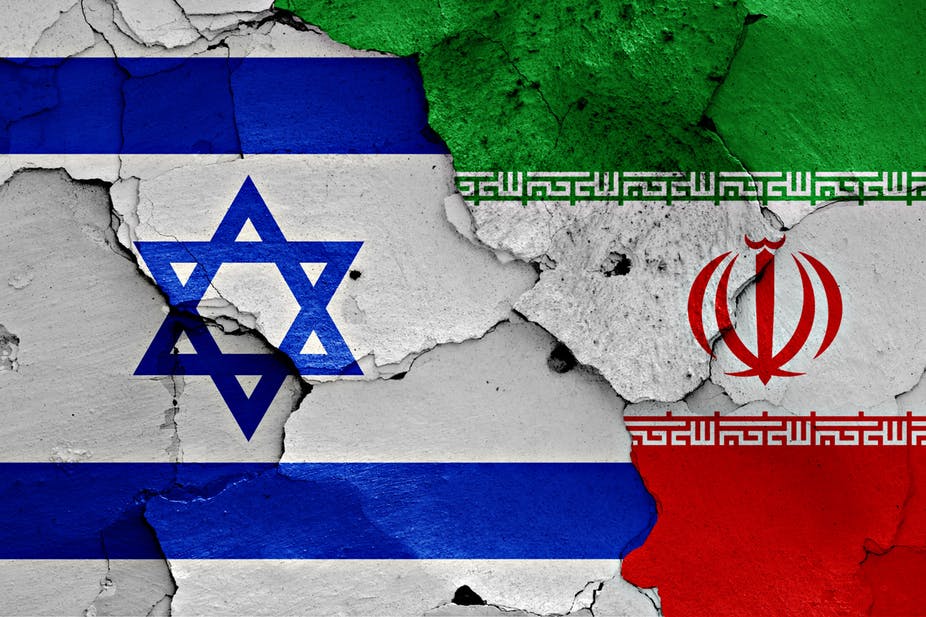The aircraft, hired from Transport Arco of Argentina by a London arms dealer, flew to Tehran twice last summer, carrying ammunition, Israeli-made 106 recoilless rifles and possibly tires for Iran's U.S.-made Phantoms.
On both occasions, it landed in Larnaca, Cyprus, changed documents to hide the flight's Israeli origin and showed its cargo to be fruit and vegetables for Iran, according to diplomatic and government sources in Turkey, Cyprus and London.
On the third flight, the plane abandoned the ruse and flew directly from Tel Aviv to Tehran, the sources said. It crashed on the return leg.
Tehran denied the arms connection. Ayatollah Ruhollah Khomeini said the reports were enemy propaganda and he did not consider Israel worth dealing with. Amir Saeedi, Iranian press attache in London, said, 'We have so much weapons from the arsenal built by the shah that we don't require Israeli weapons.'
Israel maintained silence. Yaakov Keinan, Israeli press attache in London, said, 'We have a general policy of never discussing our arms sales.'
Iran's foes, chiefly Iraq, made political capital of the arms airlift, hoping it would damage Iran's standing in Arab quarters and make a mockery of Khomeini's Islamic, anti-Israel posture.
Despite the plane crash, Western sources said an air bridge from Israel to Tehran still was operating and arms were flowing in for Iran's war effort against Iraq.
The war started in September 1980 amid a U.S. and West European embargo on arms and spares supplies to Tehran. Iran's heavy dependence on its arsenal of U.S.-made warplanes, warships, guns and missiles made it appear the war would not last.
But the war now is 19 months old and Iran has pushed back Iraqi forces from a part of the occupied land in the southwest. Western diplomats recently acknowledged Israel was the odd number among mostly East Bloc suppliers, including the Soviet Union and North Korea.
Two Israelis identified by the BBC Panorama television program last month as officers of Mossad, the Israeli secret service, said Israel wanted to strengthen the Iranian military, if only to prepare it to take over Iran after Khomeini died.
Jacob Nimrodi, who the BBC said was the head of Mossad in Tehran during the shah's rule, said Israel could 'help the Iranians to do the coup to throw this regime.'
David Kimche, Mossad's former deputy director, told the BBC, 'We want to see a stable, strong, pro-Western Iran fulfilling its traditional role as a counter-balance to possible Soviet encroachment and possible Iraqi encroachment in that area. That's our wish.'
A Western analyst in Ankara told UPI after the plane crash, 'Moscow probably knew of those secret arms airlifts and didn't like it.
'If one looked at it from a Soviet standpoint, it seemed like Israel was trying to rebuild a bridge, a Western bridge, with radical Iran,' he said.
But there was 'no proof, only suspicion' that the plane was shot down, he said. Some Iranian exiles in Paris claimed that was fact.
A Soviet version of the incident did not come until four days later, when the Tass news agency, said, 'An unknown plane entered Soviet airspace. It failed to identify itself, made a series of dangerous maneuvers and finally collided with a Russian plane.'
The Argentine ambassador in Moscow, flown to the crash site by Soviet authorities, reported he saw no sign of wreckage from a Soviet plane. Instead of the victims' bodies, the envoy received three urns said to contain their ashes.
Source


 RSS Feed
RSS Feed